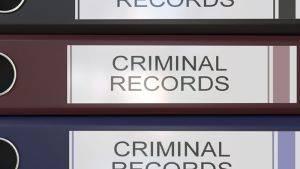Recent Blog Posts
Evidence in Criminal Cases May Include Multiple Types of Electronic Data
 In the 21st century, we live in a digital world, and this means that the regular use of computers and other electronic devices leaves a trail of data about a person’s location and activities. In many cases, the collection of data is harmless, and it can even be beneficial, such as when apps are used to track information about a person’s diet and provide recommendations about how they can improve their health. Unfortunately, many people do not realize just how much information about themselves they are sharing and who can access this information. Those who are facing criminal charges should be aware of what types of data could potentially be accessed by law enforcement and how this information could be used as evidence in their case.
In the 21st century, we live in a digital world, and this means that the regular use of computers and other electronic devices leaves a trail of data about a person’s location and activities. In many cases, the collection of data is harmless, and it can even be beneficial, such as when apps are used to track information about a person’s diet and provide recommendations about how they can improve their health. Unfortunately, many people do not realize just how much information about themselves they are sharing and who can access this information. Those who are facing criminal charges should be aware of what types of data could potentially be accessed by law enforcement and how this information could be used as evidence in their case.
Types of Data That May Play a Role in Criminal Cases
In recent years, law enforcement officials have expanded their efforts to obtain information that can be used to identify potential criminal suspects, investigate their whereabouts and activities, and determine whether they have probable cause to arrest a person and charge them with a crime. These investigations may involve information from many different sources, including:
Can Connecticut Inmates Receive a Discretionary Release Due to COVID-19?
 While the COVID-19 pandemic has affected everyone’s lives in a variety of ways, it has impacted prison inmates disproportionately. For those who are held in correctional facilities, it can be difficult or impossible to follow social distancing recommendations, and inmates may be unable to avoid becoming infected. The risk of infection has caused concern about the ongoing safety of inmates, especially since they often do not have access to adequate medical care. Because of this, the number of discretionary releases being granted by Connecticut state officials has increased, and advocates are calling for more releases, including for people being held in pre-trial detention and those who have been charged with or convicted of low-level offenses.
While the COVID-19 pandemic has affected everyone’s lives in a variety of ways, it has impacted prison inmates disproportionately. For those who are held in correctional facilities, it can be difficult or impossible to follow social distancing recommendations, and inmates may be unable to avoid becoming infected. The risk of infection has caused concern about the ongoing safety of inmates, especially since they often do not have access to adequate medical care. Because of this, the number of discretionary releases being granted by Connecticut state officials has increased, and advocates are calling for more releases, including for people being held in pre-trial detention and those who have been charged with or convicted of low-level offenses.
What Is Discretionary Release?
A discretionary release occurs when an inmate is allowed to leave prison before their sentence has been completed. In many cases, this release will take the form of parole, which will require a person to meet certain conditions before being released, while also requiring them to follow certain rules and restrictions following their release. A parolee will be under the supervision of the Connecticut Board of Pardons and Paroles. Violations of the terms of a person’s parole will result in their being taken into custody by a parole officer, and a hearing will be held to determine whether parole should be modified, extended, or revoked.
Can a School Legally Search a Student’s Cell Phone?
 Nearly everyone in the United States uses a cell phone on a daily basis, and these devices contain a great deal of personal information. This is especially true for young people, who are always finding new uses for technology. While most people have some expectations of privacy when using electronic devices, there are situations where a phone may be subject to a search by school officials or law enforcement. Students will want to understand their rights regarding cell phones, since information uncovered during a search could lead to serious penalties, up to and including criminal charges.
Nearly everyone in the United States uses a cell phone on a daily basis, and these devices contain a great deal of personal information. This is especially true for young people, who are always finding new uses for technology. While most people have some expectations of privacy when using electronic devices, there are situations where a phone may be subject to a search by school officials or law enforcement. Students will want to understand their rights regarding cell phones, since information uncovered during a search could lead to serious penalties, up to and including criminal charges.
Use of Phone Decryption Technology by Schools
Students will often use their phones to send text messages and emails, take and share photos and videos, browse the internet, and communicate with others using social media. All of these activities can involve intimate details of a person’s life that they will want to keep private. If teachers or administrators suspect that a student has violated a school’s policies or committed unlawful acts, they may ask a student to unlock their phone and submit to a search. In some cases, schools may tell students that school policies require them to unlock their phones when requested, or they may impose penalties if students refuse to comply.
Are Geofence Warrants That Track Cell Phone Data Unconstitutional?
 While modern technology has improved people’s lives in many ways, it has also created concerns about privacy. Most people carry cell phones or other electronic devices with them everywhere they go, and the use of apps that track their location can leave a data trail that provides a great deal of information about their activities and behavior. In some cases, this data may be accessed by law enforcement officials who are looking to identify criminal suspects. Recently, the use of “geofence warrants” has come under scrutiny, and criminal defense attorneys and privacy advocates are fighting back against the improper collection of data during criminal investigations.
While modern technology has improved people’s lives in many ways, it has also created concerns about privacy. Most people carry cell phones or other electronic devices with them everywhere they go, and the use of apps that track their location can leave a data trail that provides a great deal of information about their activities and behavior. In some cases, this data may be accessed by law enforcement officials who are looking to identify criminal suspects. Recently, the use of “geofence warrants” has come under scrutiny, and criminal defense attorneys and privacy advocates are fighting back against the improper collection of data during criminal investigations.
What Are Geofence Warrants?
“Geofencing” refers to drawing a boundary around a certain geographic area and identifying people within that area who have used electronic devices. When people use apps such as Google Maps, their location history is saved, and this data may be used to identify them at a later date.
Domestic Violence Cases in Connecticut May Increase Due to COVID-19
 The coronavirus pandemic has caused people and families throughout the United States to fear for their safety. While steps can be taken to minimize the risks of infection, these measures have led to a variety of other concerns, including increases in the number of reports of domestic violence.
The coronavirus pandemic has caused people and families throughout the United States to fear for their safety. While steps can be taken to minimize the risks of infection, these measures have led to a variety of other concerns, including increases in the number of reports of domestic violence.
The difficulties that families are currently experiencing has led to increased stress in many households, as well as concerns about mental health and substance abuse. Couples who have struggled with relationship issues may have seen these problems become even worse due to being required to remain in close quarters together. Stress about financial problems caused by the loss of a job or difficulties addressing children’s educational needs while they are learning from home may also contribute to the breakdown of relationships between family members.
These concerns may cause a tense situation to boil over, potentially leading to accusations of domestic assault or abuse. Advocates have reported that in recent months, calls reporting domestic violence have increased by 70%, and shelters for victims are currently at 150% capacity. This trend is expected to increase over the holiday season and during the new year. Those who are facing allegations of domestic violence will want to work with a criminal defense attorney to determine how they can address criminal charges, defend against a conviction, and preserve their family relationships and reputation.
Criminal Trials Delayed in Connecticut Due to Concerns About COVID-19
 The coronavirus pandemic has affected the legal system in many ways, and some defendants have been left in limbo as they await a trial. To protect public safety, the courts in Connecticut have significantly reduced their capacity, and no criminal jury trials have been held in the state since March of 2020. While courts have taken protective measures and planned to begin holding trials, continued concerns about COVID-19 infections have delayed proceedings, and multiple cases involving court employees who have been infected have led some to call for the closure of courts for the time being. Because of this, many criminal defense attorneys are concerned about how this ongoing situation will affect the rights of defendants.
The coronavirus pandemic has affected the legal system in many ways, and some defendants have been left in limbo as they await a trial. To protect public safety, the courts in Connecticut have significantly reduced their capacity, and no criminal jury trials have been held in the state since March of 2020. While courts have taken protective measures and planned to begin holding trials, continued concerns about COVID-19 infections have delayed proceedings, and multiple cases involving court employees who have been infected have led some to call for the closure of courts for the time being. Because of this, many criminal defense attorneys are concerned about how this ongoing situation will affect the rights of defendants.
Delays in Trials Due to Difficulty Finding Jurors
The Sixth Amendment to the U.S. Constitution guarantees that those in the United States who are facing criminal charges have the right to a speedy, public trial before an impartial jury. Postponing criminal trials indefinitely would violate the rights of defendants, so courts have been working to determine how to resume these trials while still protecting the safety of everyone involved, including defendants, judges, attorneys, jurors, witnesses, and others who would be present in court.
Are People With Mental Illness More Likely to Be Killed by the Police?
 The issue of police brutality and other forms of misconduct by police officers has been at the forefront of public debate over the past decade. These concerns have become even more prevalent in 2020 due to multiple incidents in which criminal suspects were killed by the police, sparking nationwide protests. Along with raising concerns about racial discrimination and the use of excessive force, advocates for criminal justice reform have noted that in many cases, incidents involving harm to suspects occur because police officers are ill-equipped to address emergency calls involving people who suffer from mental illnesses.
The issue of police brutality and other forms of misconduct by police officers has been at the forefront of public debate over the past decade. These concerns have become even more prevalent in 2020 due to multiple incidents in which criminal suspects were killed by the police, sparking nationwide protests. Along with raising concerns about racial discrimination and the use of excessive force, advocates for criminal justice reform have noted that in many cases, incidents involving harm to suspects occur because police officers are ill-equipped to address emergency calls involving people who suffer from mental illnesses.
High Fatality Rates in Police Calls Involving Mental Illness
A number of recent studies have looked at cases in which police officers throughout the United States responded to situations involving mental health concerns, and they found some troubling results. Around one fourth of the cases in which a person was killed in an encounter with police officers occurred in situations where officers were responding to reports of “disruptive behavior” related to mental illness or substance abuse. In addition, people with untreated mental health issues are 16 times more likely to be killed by police than other civilians, and police shootings that result in the death of a person with mental illness are 39% more likely to occur in small or mid-sized towns rather than large cities.
What Are the Laws Surrounding Marijuana Use in Connecticut?
 The marijuana laws in the United States seem to be in constant flux. Some states have legalized this drug for medicinal and/or recreational use, while in others, it remains illegal to use, possess, or distribute, and doing so can lead to drug charges. Connecticut residents may be unsure about the state’s marijuana laws, especially since the laws have also changed recently in some nearby states.
The marijuana laws in the United States seem to be in constant flux. Some states have legalized this drug for medicinal and/or recreational use, while in others, it remains illegal to use, possess, or distribute, and doing so can lead to drug charges. Connecticut residents may be unsure about the state’s marijuana laws, especially since the laws have also changed recently in some nearby states.
Massachusetts legalized marijuana in 2016, New Jersey voted to legalize the drug in 2020, and it is rumored that New York and Rhode Island are soon to follow. Connecticut’s Governor, Ned Lamont, has stated that marijuana legalization may be on the state’s legislative agenda for 2021, and the taxes generated from legal sales of the drug may help make up the state’s budget deficit. However, until new laws are passed and go into effect, it is important for Connecticut residents to understand how the state’s laws address marijuana.
Clearing Criminal Records Can Help Address Racial Inequities in the Justice System
 Racial inequality is one of the many issues that have been on people’s minds in 2020. Black Lives Matter protests erupted in the wake of the killings of George Floyd, Breonna Taylor, and others not only because of these unnecessary deaths, but because the criminal justice system is unfairly biased against people of color. Black people are arrested, charged, and convicted of crimes at much higher rates than white people, and this has led to our current system of mass incarceration.
Racial inequality is one of the many issues that have been on people’s minds in 2020. Black Lives Matter protests erupted in the wake of the killings of George Floyd, Breonna Taylor, and others not only because of these unnecessary deaths, but because the criminal justice system is unfairly biased against people of color. Black people are arrested, charged, and convicted of crimes at much higher rates than white people, and this has led to our current system of mass incarceration.
Even if a person is not convicted of a felony or does not end up in jail, criminal charges can have far-reaching effects on their lives. While Connecticut passed a “ban the box” law in 2017 that prohibits prospective employers from asking about a person’s criminal arrests, charges, or convictions on an application, background checks may still be performed during the hiring process, making it more difficult for those with a criminal record to find employment. A criminal record can also affect a person’s ability to find housing, pursue educational opportunities, or participate in children’s school activities.
How Can I Seek Compensation After Being Injured as a Passenger in a Friend’s Car?
 When you are involved in a car accident while you are driving, you probably realize that the party who caused the accident will most likely be responsible for paying for any damages to your vehicle and the costs associated with your injuries. With this in mind, it is crucial to determine exactly how the accident happened so that the liable party can be identified and held accountable.
When you are involved in a car accident while you are driving, you probably realize that the party who caused the accident will most likely be responsible for paying for any damages to your vehicle and the costs associated with your injuries. With this in mind, it is crucial to determine exactly how the accident happened so that the liable party can be identified and held accountable.
Things can become more complicated, however, when you are injured as a passenger in someone’s vehicle. From a legal standpoint, the at-fault party is still financially responsible for your injuries, but what happens if the at-fault party is the person with whom you were riding? Seeking compensation from a friend or a loved one can be very difficult, especially if you hope to maintain a relationship with that person in the future.






